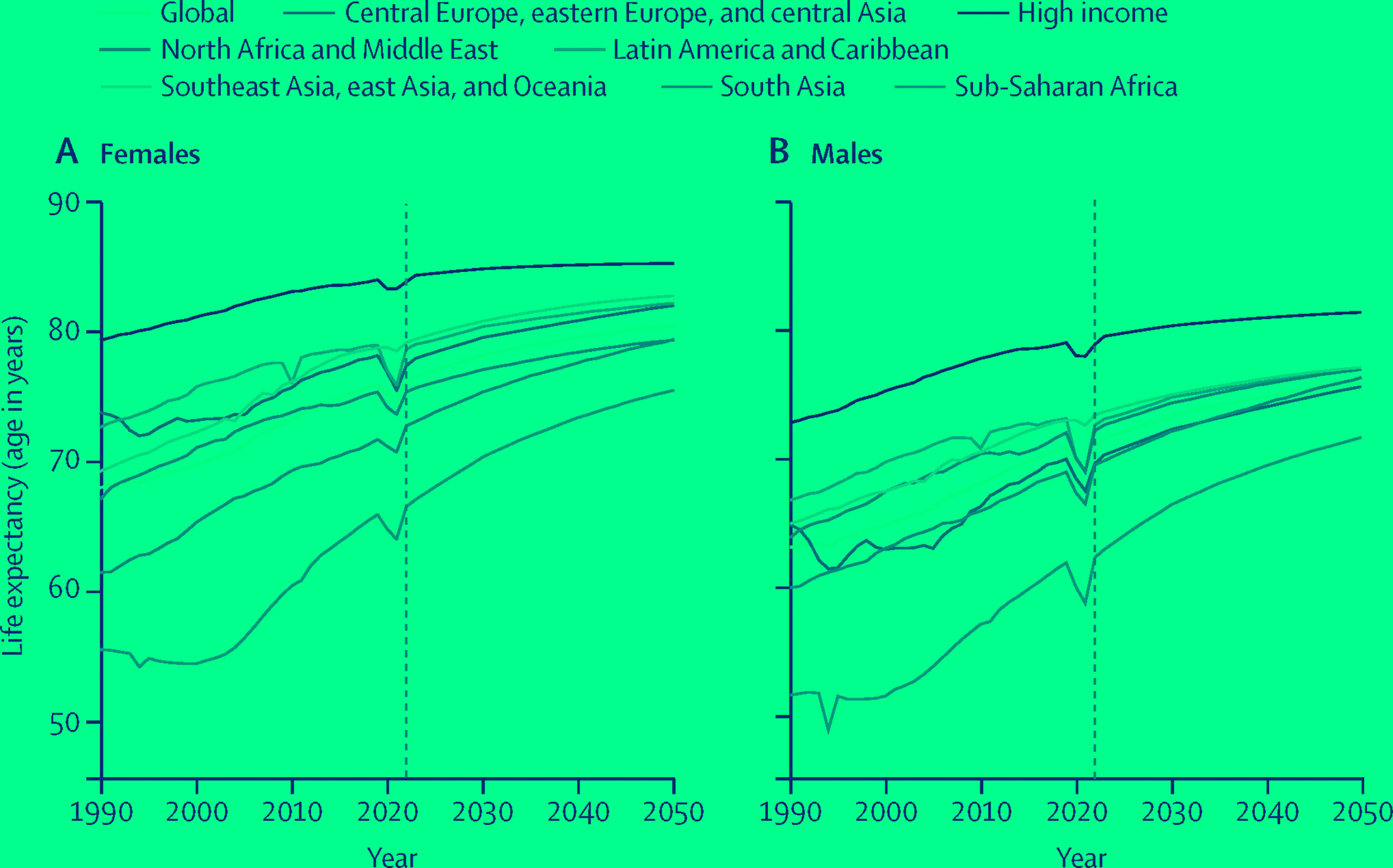What the life expectancy of an average Nigerian will be 25 years from now
What could be the only downside heading into the future for all concerned is the health challenges that come with living a longer life.
![Longer life expectancy will benefit older adults by providing additional years to enjoy their pension perks, socialise with family and friends, as well as pursue personal interests. [Borgen Project]](http://meiza.ng/wp-content/uploads/2024/05/Longer-life-expectancy-will-benefit-older-adults-by-providing-additional-years-to-enjoy-their-pension-perks-socialise-with-family-and-friends-as-well-as-pursue-personal-interests-e1716570118680.jpg)
The Global Burden of Disease Study (GBD) 2021, published in The Lancet, last weekend sheds light on the trajectory of global life expectancy. These findings have significant implications for both young and old populations or men and women, particularly in countries like Nigeria.
In the Saturday 18 May-released data, there were key takeaways. The first one is the forecasted increase projected to rise significantly from 73.6 years in 2022 to 78.1 years in 2050, representing a remarkable 4.5-year increase.
Then there would be reduced disparities which implies more years to live in the regions known to historically have lower life expectancies, such as sub-Saharan Africa and Nigeria.
It is anticipated that this trend will lead to a continued shift in disease burden from communicable, maternal, neonatal, and nutritional diseases (CMNNs) to non-communicable diseases. This transition has significant implications for health outcomes.
ALSO READ: The minimalist track for men to avoid prostate cancer ten years from now
For the young population, improved survival is to be expected, says The Lancet report. This means that more children born today will have a better chance of surviving into adulthood. Public health interventions, vaccination programmes, and advancements in medical care play a crucial role in achieving this improvement.

The older citizens will get an extended lifespan based on the new findings. Longer life expectancy will benefit older adults by providing additional years to enjoy their pension perks, socialise with family and friends, as well as pursue personal interests.
What could be the only downside is the health challenges that come with living a longer life.
This is because transitioning towards non-communicable diseases means that older adults may face conditions like cardiovascular diseases, cancer, and diabetes. Addressing these challenges requires robust healthcare systems and preventive measures and this is an area in which Nigeria finds itself still feeling out of depth.
So what is the next step to take?
Even though life expectancy as of 2019 revealed 54.5 years, that figure was significantly lower than the global average. However, the GBD 2021 projections offer hope for Nigeria, as they indicate an upward trend.
To realise the benefits of increased life expectancy, the country must focus on strengthening healthcare infrastructure, ensuring access to quality medical services, and promoting preventive measures.
Other times, it is expected that Nigeria should focus attention on raising awareness about healthy lifestyles, early disease detection, and managing NCD risk factors. Providing support systems for older adults, including social security, mental health services, and community engagement ought to also come.
The Lancet’s latest findings underscore the importance of global efforts to improve health outcomes. By addressing both communicable and non-communicable diseases, Nigeria can ensure that longer lives are healthier lives.

Ayodelé is a Lagos-based journalist and the Content and Editorial Coordinator at Meiza. All around the megacity, I am steering diverse lifestyle magazine audiences with ingenious hacks and insights that spur fast, informed decisions in their busy lives.





![Most certainly, men who already stumbled upon the proposed hack to enhance their prostate health through frequent sex may feel ruined if they do not have partners or wives who share their enthusiasm for bedroom action. [Freepik]](http://meiza.ng/wp-content/uploads/2024/05/african-american-artist-looking-vase-design-inspiration-draw-canvas-creativity-studio-room-home-black-adult-man-using-pencil-masterpiece-drawing-creating-fine-art_edited-scaled-e1716381738992-390x220.jpg)
